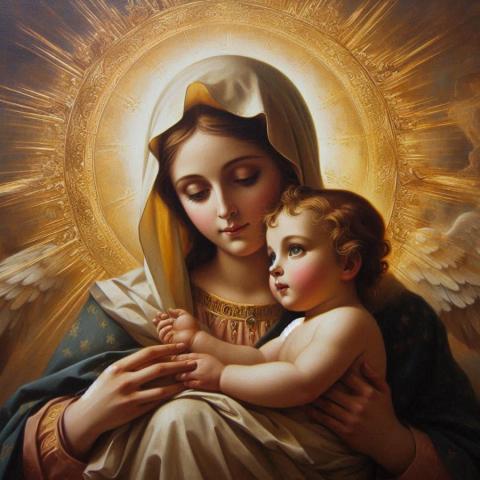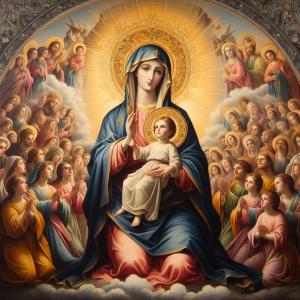
The most important event in the life of Mary, according to Christian tradition, is the Annunciation. This event is when the angel Gabriel appeared to Mary to announce that she had been chosen by God to conceive and give birth to Jesus, the Son of God. The Annunciation is celebrated as a key moment in Christian theology, as it marks the beginning of the Incarnation—God becoming human in the person of Jesus Christ.
Mary's acceptance of this divine role, expressed in her response, "Behold, I am the handmaid of the Lord; let it be to me according to your word" (Luke 1:38), is seen as a pivotal act of faith and obedience.
The Annunciation is a deeply significant event in Christian tradition, marking the moment when Mary, a young woman from Nazareth, was visited by the angel Gabriel. This event is recorded in the Gospel of Luke (Luke 1:26–38) and is celebrated annually by Christians on March 25th, known as the Feast of the Annunciation.
Gabriel greeted Mary with the words, "Hail, full of grace, the Lord is with you" (Luke 1:28), indicating that she was specially chosen by God. Mary was initially troubled by the angel’s message, but Gabriel reassured her, telling her that she had found favor with God and that she would conceive and bear a son, to be named Jesus. Gabriel explained that Jesus would be great, called the Son of the Most High, and that His kingdom would have no end.
Mary, though puzzled, asked how this would be possible since she was a virgin. Gabriel responded, "The Holy Spirit will come upon you, and the power of the Most High will overshadow you; therefore the child to be born will be called holy, the Son of God" (Luke 1:35). Gabriel also told her about the miraculous pregnancy of her relative Elizabeth, showing that nothing is impossible with God.
What makes the Annunciation especially profound is Mary’s humble and faithful response: "Behold, I am the handmaid of the Lord; let it be to me according to your word" (Luke 1:38). In this moment, Mary accepted her role in God’s plan for the salvation of humanity. Her "fiat" (Latin for "let it be done") is considered one of the greatest acts of faith in Christian history, as it signified her willingness to cooperate with God’s will, despite the personal challenges and societal risks it might have involved.
The Annunciation is often seen as the moment when the divine and human realms intersected in a unique way, initiating the Incarnation—the mystery of God taking on human nature. Mary’s role as the Theotokos (Greek for "God-bearer") became central in Christian theology, particularly in the understanding of Jesus as fully divine and fully human.
For centuries, the Annunciation has been depicted in Christian art, often showing Mary in a posture of humility and contemplation, with Gabriel presenting a lily, a symbol of her purity. The event also highlights the themes of God's grace, human free will, and the transformative power of faith.


